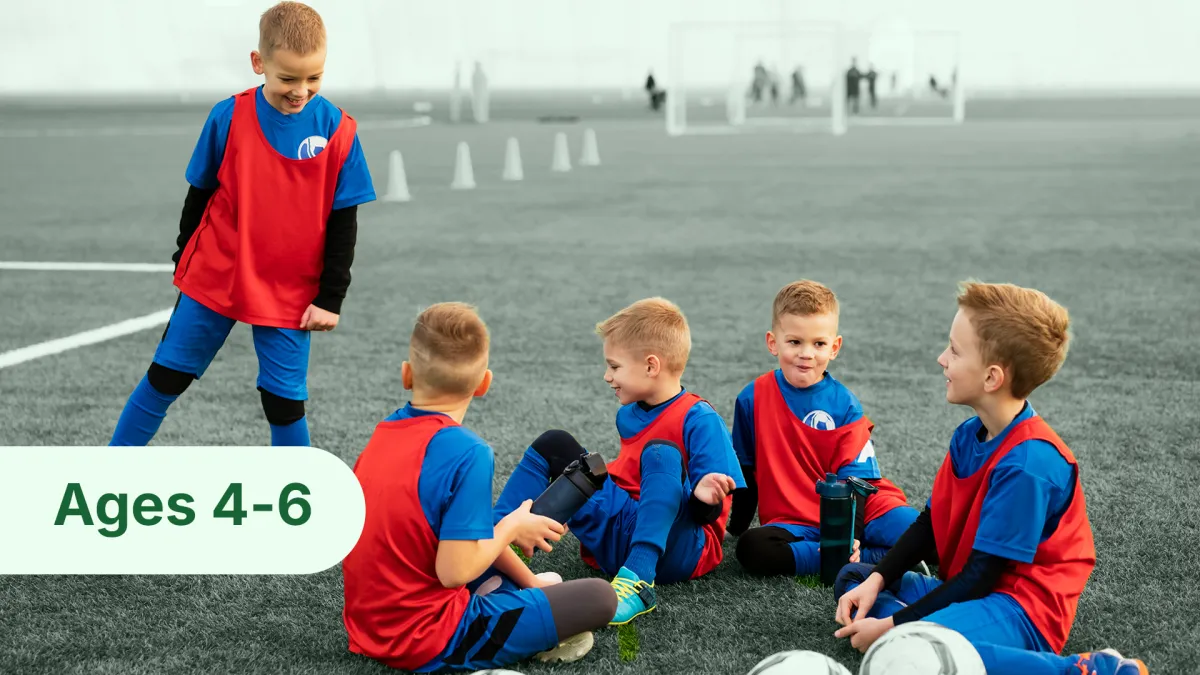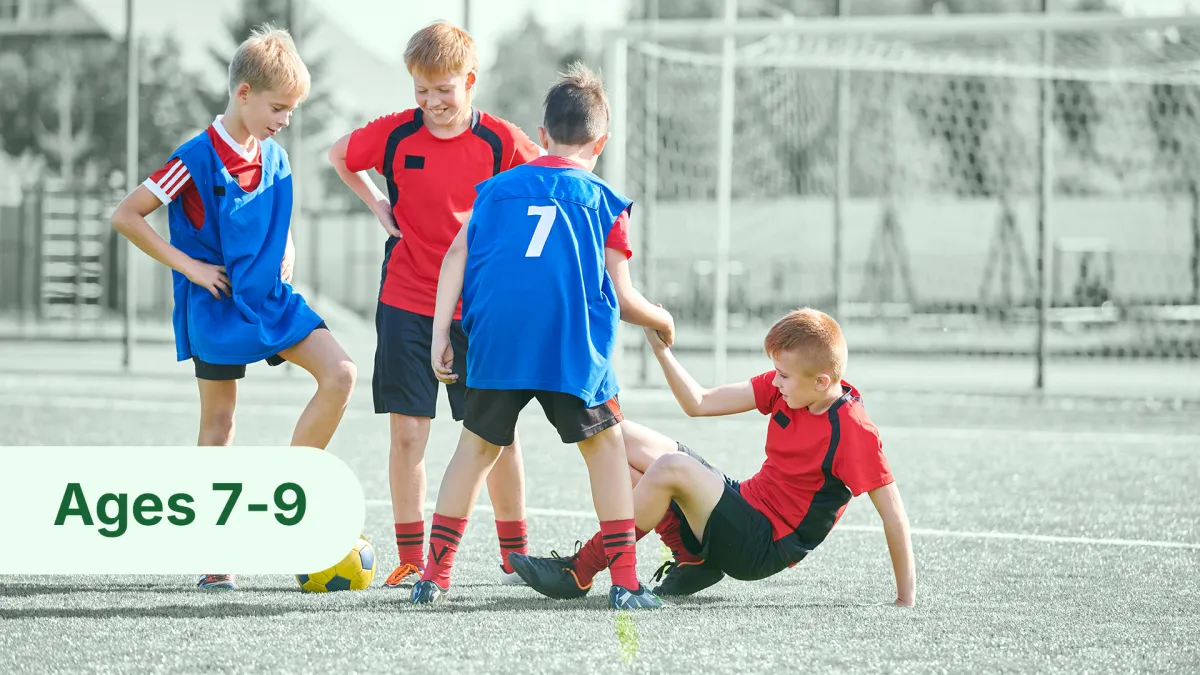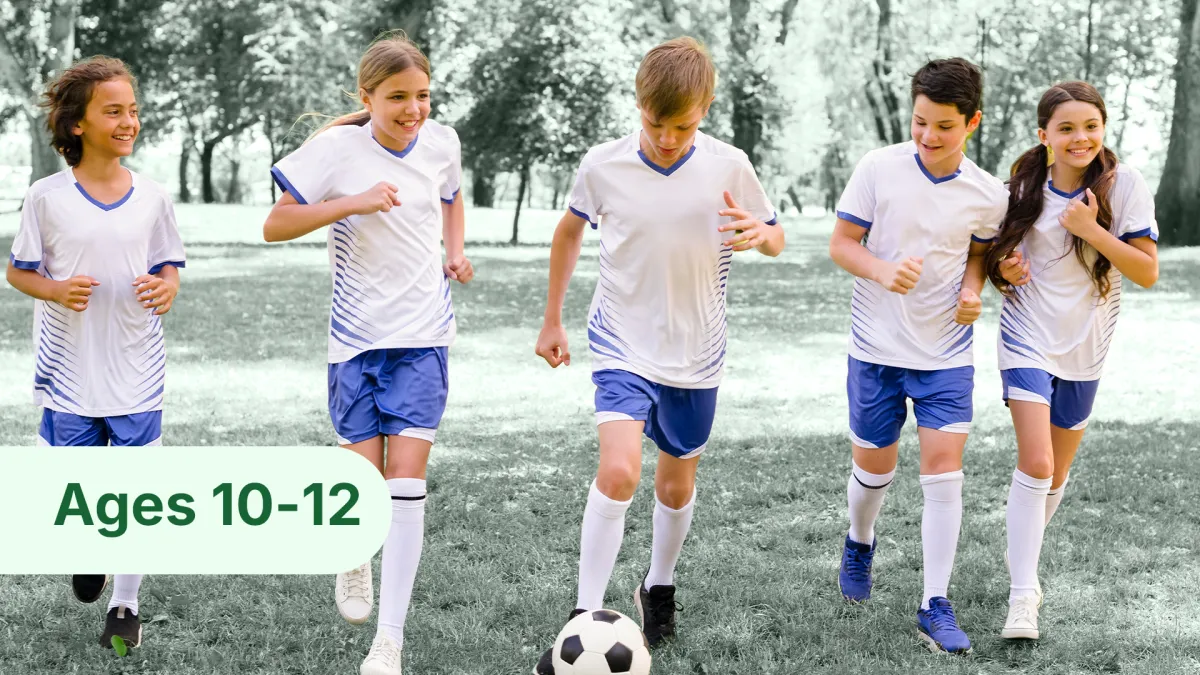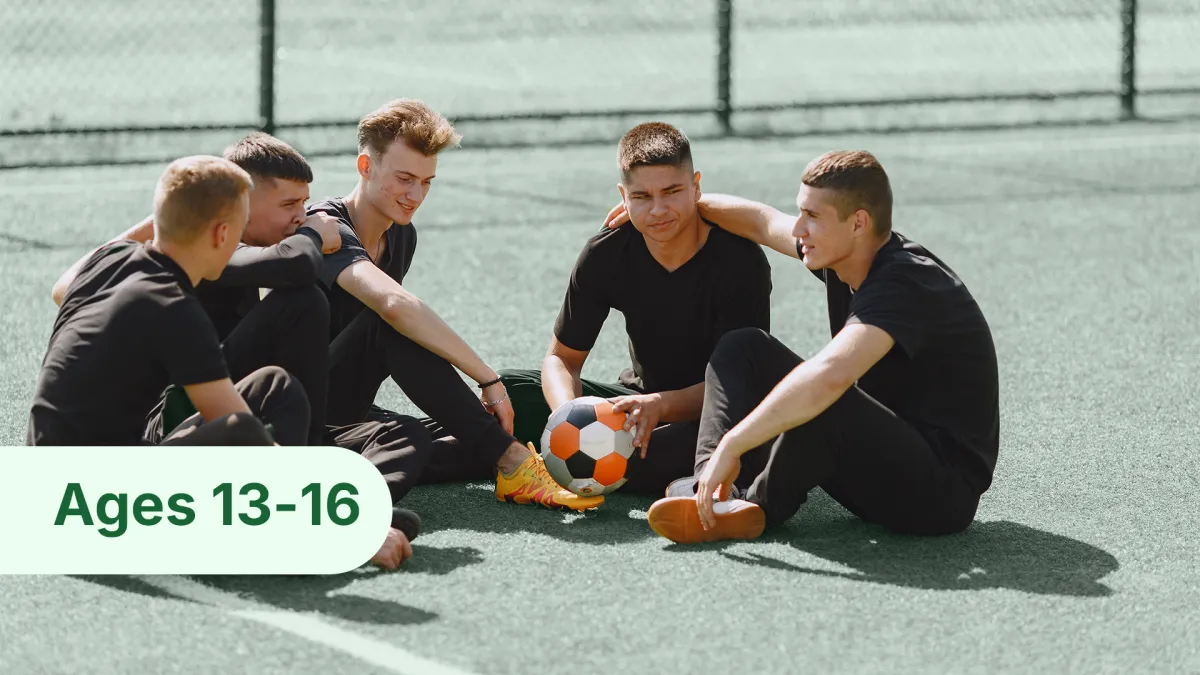The Soccer Journey
Understanding the developmental path for young soccer players from ages 4-16, including key milestones and growth opportunities.
Developmental Stages
Soccer development follows a natural progression as children grow physically, mentally, and emotionally.
Ages 4-6: Introduction to the Game
The foundation stage where fun and basic movement are key
Key Focus Areas:
Basic motor skills: running, jumping, balancing
Introduction to the ball: simple touches, dribbling in open space
Fun games that encourage movement and basic ball control
Social interaction and learning to follow simple instructions
At this stage, the emphasis is on creating a positive, fun environment where children develop a love for the game. Sessions are short, engaging, and filled with activities that keep young players moving and smiling.

Ages 7-9: Skill Development
Building technical foundations and basic game understanding
Key Focus Areas:
Basic technical skills: dribbling, passing, receiving, shooting
Introduction to small-sided games (1v1, 2v2, 3v3)
Basic positional understanding and spatial awareness
Developing coordination and agility through fun drills
Players at this age begin to develop more refined technical skills and a basic understanding of the game. While fun remains essential, structured practice becomes more important, with a focus on repetition of fundamental skills.

Ages 10-12: The Golden Age of Learning
Peak motor learning period with rapid skill acquisition
Key Focus Areas:
Advanced technical skills: ball mastery, all types of passes and shots
Tactical concepts: creating space, defensive principles, attacking play
Decision-making in game situations
Introduction to position-specific skills
Often called the "golden age" of motor learning, this period is crucial for skill development. Players can absorb new techniques quickly and begin to understand more complex tactical concepts. Training becomes more structured while still maintaining an element of fun and creativity.

Ages 13-16: Advanced Development
Refining skills and developing tactical understanding
Key Focus Areas:
Refinement of technical skills under pressure
Advanced tactical understanding: team shape, systems of play
Physical conditioning: strength, speed, endurance
Mental aspects: concentration, resilience, game intelligence
As players enter adolescence, physical changes impact their development. Training becomes more specialized, with a greater focus on position-specific skills and tactical understanding. The competitive element increases, though player development should still take priority over match results.

Starting Your Soccer Journey
For players aged 8-12 looking to begin their soccer journey, I offer specialized introductory programs that focus on building fundamental skills in a supportive environment. These sessions are designed to help new players quickly develop confidence with the ball and basic game understanding.
The "How to Start My Soccer Journey" sessions provide a perfect entry point for players who are new to the sport, covering essential skills, basic rules, and fun activities that build a strong foundation for future development.
Find the Right Program
No matter where your child is in their soccer journey, I offer programs tailored to their developmental needs.


